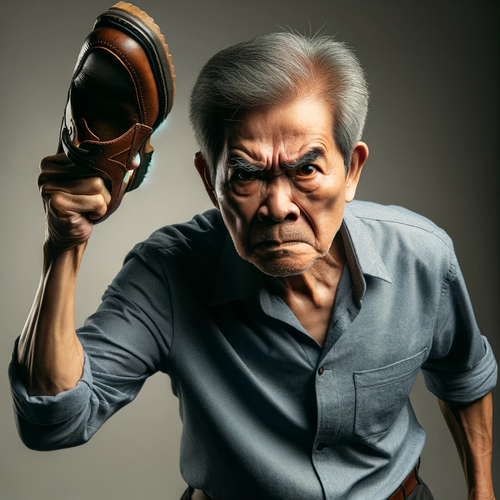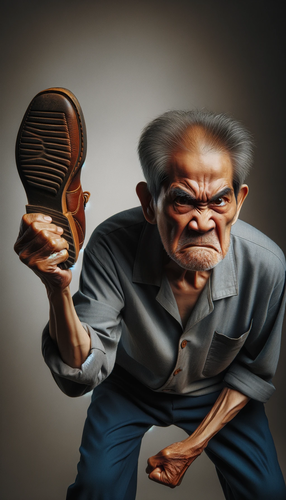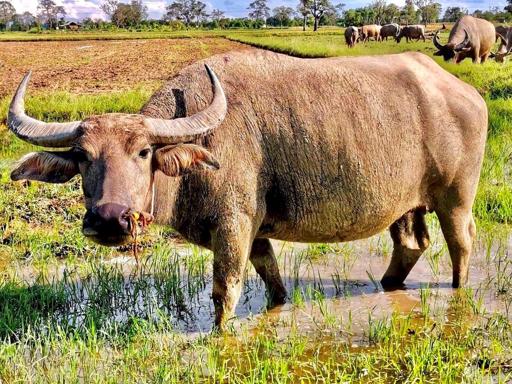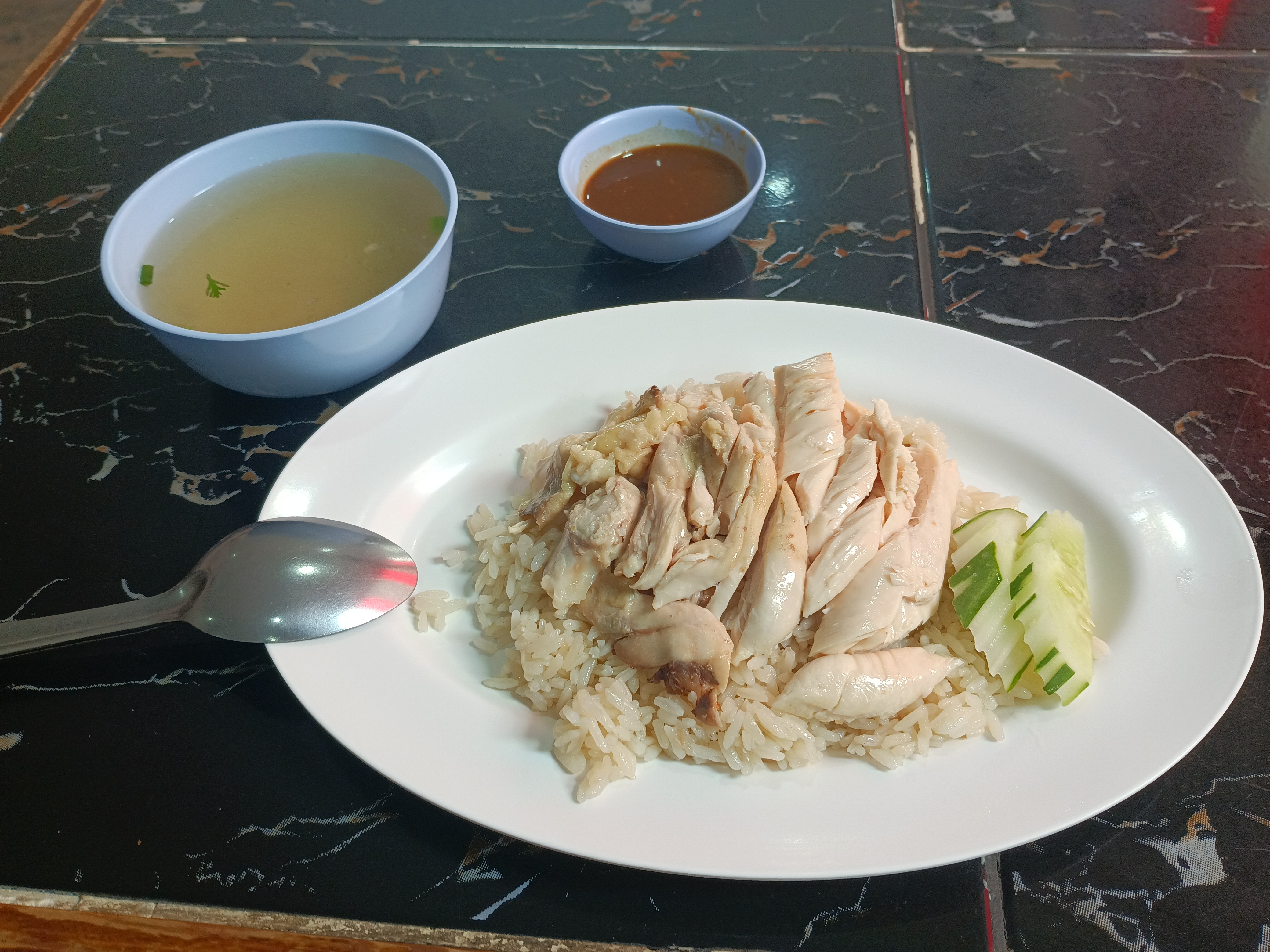Thai Insults & Swear Words for Beginners

Fancy getting yourself in some trouble with the locals on your holiday? Or have you been offended by a Thai calling you fat?
OK, so you have arrived in Thailand and want to begin learning Thai. What better way to start than with the swear words and insults? While learning Thai swear words and insults can be extremely funny, it is important to note that Thais' relationship with swearing and insults is likely much different from that in your home country. What might seem humorous in your culture could come across as coarse in Thailand. So please be careful swearing in Thailand, as although you may mean it in a funny way it may not come across that way.

In contrast to English, Thai language has words that describe the same thing, but convey a different level of politeness. Let's take an easy example to begin with, the word 'eat' in Thai translates to gin (กิน) which is the middle of the road not polite and not impolite way to express the word eat. However, if one prefers to be extra polite you could say taan (ทาน) perhaps reserved for elders or someone like your boss. At the other end of the scale you could say daek (แดก) which if not speaking to a very close friend would come across as extremely rude.
For our purposes, we will examine offensive pronouns. To be very rude about someone in Thai, you can prepend 'Ai' (ไอ้) for males and 'Ee' (อี) for females to their name. This can be considered either a term of endearment or a highly offensive way to refer to someone. In terms of personal pronouns if we refer to the first person singular "I" as guu (กู) and the second person singular "You" as mung (มึง) , this is also considered highly offensive in the right context which we will delve in to later.
Ok now that we have the necessary building blocks, we will begin with the three broad categories of insults and swear words you may hear.
Animals
Thai insults rely heavily on referring to the recipient as some sort of animal. This category is by far the funniest , at least by western standards these insults come across either as perplexing or hilarious. Let's start with the most general term.
Sat (สัตว์)
To call someone Sat , usually prepended with the Ai / Ee for male / female is to call them an animal , or perhaps more accurately a f$#@ing animal to convey the severity of insult level. This is considered highly offensive, sometimes you may hear close Thai friends refer to eachother as Sat , but this probably isn't a good idea for you to try out as there aren't many scenarios calling someone a f$#@ing animal in English is likely to result in good outcomes.
Kwai (ควาย)
I think this one is very funny, if someone is called a Kwai it means to refer to them as a buffalo. The best English translation of this is probably "Moron" , to call someone a buffalo in Thai is to infer they are very stupid or clumsy.

Although we take the view that the use of 'kwai' is not as incendiary as 'sat', make no mistake: calling someone a buffalo in Thailand is a serious allegation, and using it incorrectly may cause you trouble. Although it has never been directed at me in anger, I feel that if it ever were, I would find it too funny to be angry—I mean, it's just a buffalo!
An interesting observation about the use of 'kwai' is that it seems to be used alone without prepending the ai/ee , although I guess this is a perfectly legit use of the ai/ee it seems that just 'kwai' is enough!
Hia (เหี้ย)
Hia is perhaps the most flexible of the Thai swear words, and I would argue the most common. Hia directly translates to a monitor lizard, thailanguagehut.com has an interesting discussion about how the Thai king took pity on these 'unfortunate animals' , and now they are a protected species according to wikipedia.

Use of 'hia' as we mentioned is quite flexible below we show some common use cases.
- To call someone an Ai/Ee Hia is probably the most straightforward use of the term, and considered possibly the worst insult to use for someone in Thailand. High risk.
- Also you can use the term 'hia' as an adjective, for example if someone is a very bad driver you could say kap lot hia mak (ขับรถเหี้ยมาก) which directly translates to 'drive car very lizard' and may translate more semantically to mean 'driving like a c***!' Medium Risk
- Also you can use the term Hia as an expletives in the event you stub your toe for example, this may be an appropriate time to say "hia". Low risk.
Another interesting observation is that I have heard Thais replace the h in hia with a j , so to become Ai/Ee Jia , perhaps as a way to soften the language in the case of an expletive. So if you see something shocking you might be advised to say Ai Jia rather than Ai Hia.
Again, I am not sure I could stop myself from laughing if someone called me a lizard in anger, but I don't recommend calling Thai people it as they most likely will get very angry.
Parental Insults
As with every culture, parental insults have a strong presence in the Thai insult vocabulary. Interestingly, compared to the English language, where insults are directed solely towards the mother, Thais also insult the father equally. Whether this is an innocent omission by English speakers, or the next hill for Western feminists to die on, we will leave to greater minds!
As an American chap found out when he skipped the queue for a taxi in Bangkok, and was subsquently cursed with "your father died' in English, for which the offended Thai man, we assume was directly translating Por Mung Dtai (พ่อมึงตาย) which can be viewed as highly offensive to Thais.
Another short anecdote involves two European males who befriended a Thai construction foreman, whom we will refer to as Mr. C. He would instruct these foreigners to reply to his Thai friends, when asked if they could speak Thai, with 'pood chat gwa por mung eek' (พูดชัดกว่าพ่อมึงอีก). While this phrase doesn't seem like such a big deal in a direct translation, given Mr. C's track record of tricking the Europeans into ordering fried vagina noodle soup, perhaps they should have been more aware of the level of insult!
And of course we have the old classic in English motherf##*** in Thai would be pronounced yet mae (เย็ดแม่)
Feet Things
Again we give feet insults and swears a category of its own, due to how alien this all will sound to western readers. For those that have read the crash course intro to Thai culture articles in preparation for their trip to Thailand, you have undoubtedly came across the fact that Thais view the head with reverence and the foot with what can be best described as cautionary acceptance. It is for this reason that when entering a Thai's home you will almost invariably be requested to remove your shoes to enter the living area.
So how is this used as an insult?
Bpai glai glai dteen guu (ไปไกลไกลตีนกู)
If you are to hear this phrase it directly translates to 'Go far far from my feet' , although we should note the use of guu กู the offensive pronoun for I/me and also the use of dteen ตีน which is a rude way to refer to ones feet, similar to the eating example we gave in the introduction to this post, Thais have an impolite word to refer to feet. I think perhaps dteen is generally used to refer to animal feet, as there is a chicken feet soup, that I often see uses the dteen word without any rudeness intended. This probably translates best to the term "F off" in English, again not recommended to try out. I actually recently heard a Thai say this to another Thai, and had to really control myself from bursting out laughing.
Naa son teen (หน้าส้นตีน)
This directly translates to 'face bottom foot,' used to refer to someone’s face as the bottom of a foot. Another term that might perplex an English speaker as to why it is offensive. I guess it probably wouldn’t be taken as a compliment in English either, if someone said 'you have a face like a foot sole.' In my mind, this is akin to the British term 'face like a well-slapped arse,' which I think is the closest equivalent. Mostly, I don't really understand how a face can look like either a slapped arse or the bottom of a foot.
Is it offensive to call someone fat in Thailand?
For those that have spent any length of time in Thailand, they invariably go through the shock of having a Thai person call them fat in a way that would be considerated highly inappropriate at best and obnoxious at worst in a western country. So the word for this in Thai is uan (อ้วน) meaning fat. I personally have went through the process of putting on a few kg, and perhaps returning to an area that I have stayed for a while, to be greeted by what feels like Thais coming out of the woodwork to say uan kuen (อ้วนขึ้น), with big smiles on their faces. I have to admit this at first does feel very offensive coming from a western country. However, one should note that the Thais do not mean this in an offensive way at all, it simply is not considered as rude as it is in say USA or UK.
I personally have never had the heart to point out to my Thai friends and acquantanices that this is considered quite rude. I think in hindsight there are two main reasons for this:
1) In a strange way I think they might feel upset by pointing this out that they are being rude, or somewhat mortified that they may have offended you. It really is not in the Thai nature to be offensive and the idea of pointing out another's errors isn't really the done thing.
2) I find the most incredible amusement out of watching other foreigners go through the process of being called uan I honestly can't explain in words the sense of glee I get when I hear the stories or witness it! It is possible once you learn a bit more Thai to get two for the price of one in this situation, I recall witnessing this a few times, and I have said to the Thai person after with a fake look of concern 'sia malayart yang raeng tee ban kao' (เสียมารยาทอย่างแรงที่บ้านเขา) which basically means that is very rude in his/her country to say. So I get amusement on both ends of the cultural misunderstanding!
So in summary you should just put a brave face on and smile however painful it may be when called uan! Thais really don't mean this as an insult!
Summary
OK, that should be enough to keep you going for a while with your introduction to Thai potty language. Even though we've consistently warned throughout this post to be careful with these phrases, if you do try them out, it’s best to do so with someone you have known for a considerable length of time. As a European who spent a lot of time in Thailand in my 20s and 30s, and as I alluded to in the Mr. C anecdote, there is a certain type of Thai man who will take great pleasure in teaching farang swear words. However, Thai females almost universally disapprove of such language and may even reprimand you with 'where did you learn that?' or 'speak not good,' or something similar. So, if your aim is to impress a Thai female, using swear words in an effort to seem racy is not a good strategy. You would be much more successful being overly polite. However, drinking some whiskey with your new Thai friends on the beach may be a different story although caution is still advised. For a female, calling your Thai boyfriend a buffalo playfully may be considered humorous, if you try it out let me know!
Additionally, if you are considerably older than the Thai person you are talking to, it is highly unlikely they will correct you, and they may just smile. However, it's important to note that this smile is likely to be a smile of embarrassment and may provide negative feedback for those accustomed to interpreting a smile as indicative of amusement, which it doesn’t always or usually mean in Thailand.


